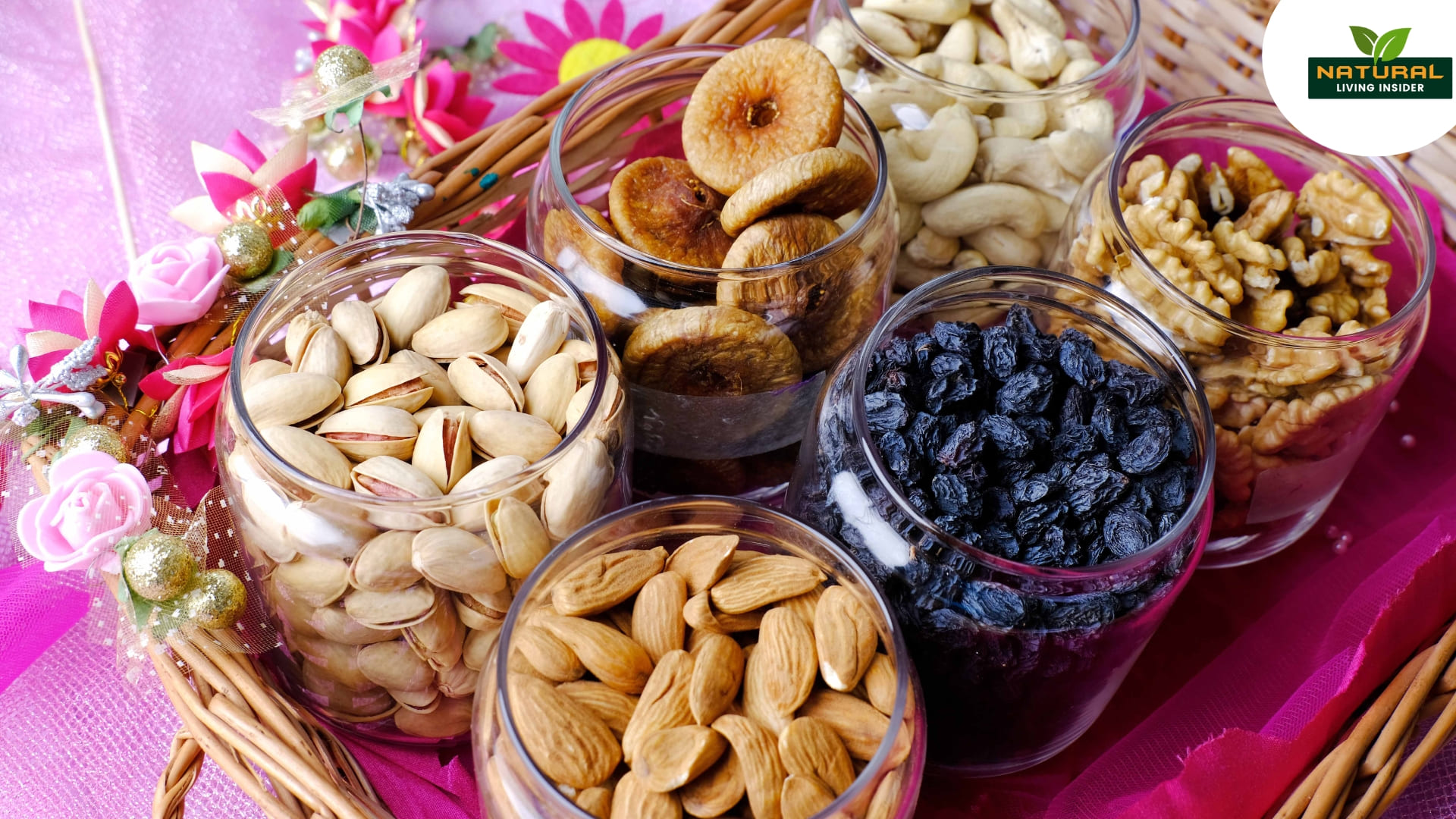
As the winter chill sets in, our bodies require additional nourishment and warmth to stay energized and healthy. One of the best ways to support your well-being during the colder months is by incorporating dry fruits for winter into your daily diet. Not only are dry fruits packed with essential nutrients, but they also offer a delicious, satisfying snack that can be enjoyed in a variety of ways. Here’s a guide to some of the best winter snacks and how they can benefit your health.
Table of Contents
Why Dry Fruits for Winter Are Ideal
Dry fruits, such as almonds, cashews, walnuts, and dates, are a great source of essential vitamins, minerals, and healthy fats. During the winter months, when our metabolism tends to slow down and our bodies burn energy more efficiently to keep warm, dry fruits help provide that extra boost. Rich in antioxidants, fiber, and healthy fats, these nutrient-dense snacks help support your immune system, maintain skin health, and provide a long-lasting energy source to get through the day.
Top Dry Fruits for Winter
-
Almonds
Almonds are one of the most popular for winter. Packed with vitamin E, antioxidants, and healthy fats, almonds help improve skin health by keeping it moisturized and protected from the cold weather. Soaking almonds overnight and consuming them in the morning is a popular practice for better digestion and enhanced nutrient absorption.
Health Benefits:
- Boosts heart health by lowering bad cholesterol.
- Improves brain function.
- Supports weight management.
-
Cashews
Cashews are rich in magnesium, iron, and zinc, which are essential for maintaining strong bones, muscles, and a healthy immune system. These creamy nuts are also high in protein, making them an excellent option for winter snacks or as a topping for your favorite dishes.
Health Benefits:
- Helps in muscle and bone strength.
- Enhances immune function.
- Provides long-lasting energy.
-
Walnuts
Walnuts are loaded with omega-3 fatty acids, which play a critical role in brain function and reducing inflammation in the body. These crunchy nuts are a great addition to any winter diet as they help support cognitive function and heart health.
Health Benefits:
- Promotes brain health and improves memory.
- Reduces inflammation and supports joint health.
- Boosts heart health.
-
Dates for Energy Boost
Dates are a natural source of sugar, which makes them an excellent choice for a quick energy boost during the winter months. They are also rich in fiber, potassium, and magnesium, which help in maintaining healthy digestion and supporting muscle function.
Health Benefits:
- Provides natural energy.
- Aids in digestion and helps prevent constipation.
- Supports healthy skin and hair.
-
Pistachios
Pistachios are another great option for snacking during winter. High in protein, fiber, and antioxidants, these little nuts help support heart health, improve digestion, and keep your immune system strong. Pistachios are also packed with vitamin B6, which is essential for brain health and mood regulation.
Health Benefits:
- Supports heart health and blood circulation.
- Aids in muscle and nerve function.
- Boosts mood and energy levels.
-
Figs for Digestion
Figs are packed with dietary fiber, making them an excellent option for improving digestion, especially during the winter months when our digestive system may need extra support. They also contain a variety of vitamins and minerals, including calcium, potassium, and magnesium.
Health Benefits:
- Supports digestive health and helps relieve constipation.
- Improves bone health due to high calcium content.
- Provides a natural energy boost.
-
Apricots for Skin Health
Dried apricots are rich in vitamin A, which is essential for maintaining healthy skin and eyesight. They are also a great source of iron, which helps in combating winter fatigue by supporting healthy blood circulation.
Health Benefits:
- Boosts skin health and promotes healthy eyesight.
- Prevents anemia by improving iron levels.
- Supports immune function.
How to Incorporate Dry Fruits Into Your Winter Diet
Dry fruits can be consumed in various ways, making them easy to add to your daily routine. Here are a few simple ideas:
- Morning Snack: Soak a handful of almonds and walnuts overnight, and eat them in the morning to kickstart your day with a healthy boost.
- Trail Mix: Combine a mix of your favorite dry fruits with seeds and dark chocolate for a delicious and nutritious snack.
- Smoothies: Blend dry fruits like dates, apricots, and figs with milk or yogurt to make a filling and nutritious winter smoothie.
- Baked Goods: Add chopped dry fruits to your homemade cookies, cakes, and muffins for extra flavor and nutrients.
- Salads: Top your winter salads with pistachios, cashews, and dried apricots for added crunch and sweetness.
Incorporating dry fruits into your winter diet is a simple and delicious way to support your health and well-being during the colder months. From improving skin health to boosting energy levels, supporting the immune system, and providing brain-boosting nuts, dry fruits are a natural source of essential nutrients that can help you thrive this winter. Experiment with different combinations, and enjoy the benefits of these nutrient-packed snacks as part of your daily routine!


